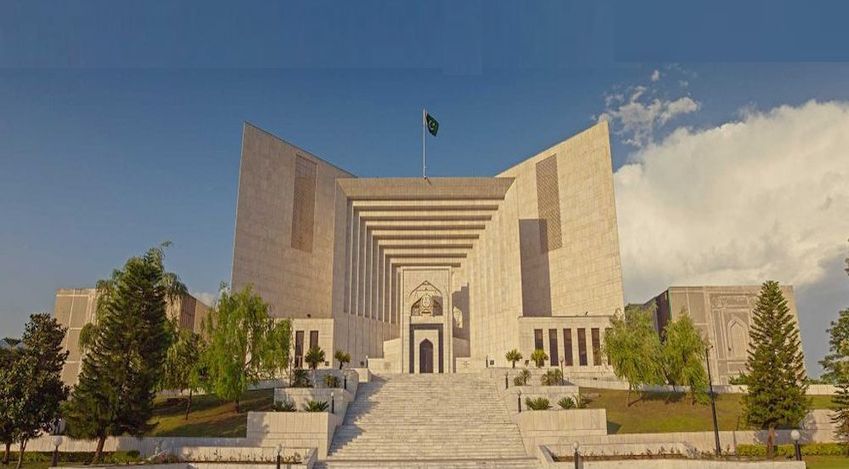Supreme Court Overturns Lahore High Court Ruling and dismissed the Recovery Suit of respondent due to Inequitable Conduct --- SCP
Islamabad 09-08-2024: In a significant legal development, the Supreme Court of Pakistan has overturned a Lahore High Court judgment in the case of Civil Appeal No. 296/2015, involving the Islamic Republic of Pakistan through the Secretary, Ministry of Defence, and Respondent.
The case revolves around a contract signed in December 1986 for the provision and installation of POL cylindrical steel tanks in Quetta. The project, originally slated for completion within 12 months, faced extensive delays due to site availability issues, delayed provision of layout plans, and material shortages. These delays prompted Respondent to file a suit for recovery amounting to PKR 32,285,308/-, which was decreed in their favor by the trial Court and subsequently upheld by the Lahore High Court.
Supreme Court Ruling:
Limitation Period: The Supreme Court affirmed that the suit was filed within the appropriate time frame, dismissing arguments related to the limitation period.
Concurrent Delays: The Court acknowledged that both parties contributed to the project delays, categorizing them as concurrent delays. This was a pivotal aspect of the Court's analysis, with references to the Malmaison case and other legal principles.
‘But-for’ Test of Causation: Applying the 'but-for' test, the Court concluded that the respondent's delays were independent of the appellants' actions.
Equitable Principles: The judgment emphasized the principle that parties seeking equitable relief must act fairly and honestly, suggesting the respondent's suit for recovery had mala fide intentions.
Recovery and Refund Mechanism: The Court highlighted the contractual provisions allowing for post-payment audits and the right to recover overpayments, supporting the appellants' actions.
Concurrent Findings of Fact: The judgment criticized the lower Courts' findings as patently improbable and perverse, justifying the Supreme Court's intervention.
Extensions of Time and Compensation: The Court noted that while the respondent was entitled to extensions due to concurrent delays, they were not entitled to the compensation claimed.
The Supreme Court allowed the appeal, setting aside the Lahore High Court's decision and dismissing the respondent's suit for recovery. The Court's ruling underscores the importance of equitable conduct in legal disputes and clarifies the application of concurrent delay principles in contract law.
This landmark judgment not only impacts the parties involved but also sets a precedent for future cases involving complex contractual disputes and delay claims in Pakistan.
Powered by Froala Editor








